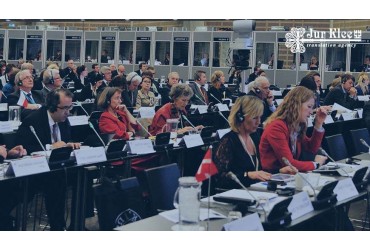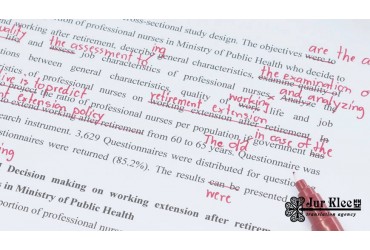
Translation and modern technologies, the way from a paper dictionary to cloud services
Translation of documents is required in some cases. The need in such work arises with the provision of certain documents abroad, when doing business with foreign partners, for consular certification. In any case, high-quality, accurate translation of documents is required, which will preserve the meaning of the text and represent it in a comprehensible form.
Depending on the nature of the documents, a complex technical translation may be required. For example, a translation of the instructions for using equipment. Any legal or medical translation is of considerable complexity. This is explained by the large number of special terms and the need to represent the very essence of these terms.
Actually, the translation process begins with the study of the text, then the preparation for translating the most significant and complex fragments of the text is carried out.
Evolution of translation
Obviously, the need for translating text documents has existed since the beginning of their appearance. The first instruments for making translations at the household level were dictionaries. Some of the earliest dictionaries, in English, were glossaries of Spanish, French and Latin words with their definition in English, dated to the 14th century AD. Such dictionaries allowed you to translate only single words or phrases. When translating a large text, especially of professional content, the meaning got lost. After all, dictionaries allow you to do a literal translation without keying into the essence of the text, understanding its specifics.
However, dictionaries for a long time were the only source of information on the meaning of foreign words. With the appearance of computer technologies, the implementation of translations has become much easier. For example, a variety of software products has appeared. These are voice translators, allowing you to make a translation from your voice. Online translators, translating the meaning of the text entered into a special field, have become available.
There are also professional programs created for qualified translators. However, they all have an auxiliary meaning. They cannot replace the experience and knowledge of an interpreter. Therefore, the basis of the right correct translation was and remains a specialist. And no programs are able to convey the significance of the agreement between the parties, the court's decisions. Consequently, when translating, the quality of the translation depends only on the level of preparation of the translator himself.
Modern Translation Technologies
Thanks to modern technologies, the translation process itself has become much simpler. It became much easier to find qualified specialists, to interact with them. For example, machine translation is closer to the literal translation. It is a process of gradual translation word by word.
Meanwhile, the use of smart tools offers many advantages. For example, SmartCAT is able to find and mark all the special terms in the text presented. In this case, the program finds the correct form of translation, regardless of the word form used. The program will not get lost and will not get confused. This is extremely important and it is this that guarantees the correct translation with the representing of the semantic meaning of the text.
There is a possibility to memorize the translated texts. They remain in memory and when working with the similar fragments of text, they are output from memory. Accordingly, they can be delivered to a new translated document. And if adjustments are needed, you can make changes.
The program also uses machine translation. For the convenience of users, several machine translation systems are available: Google, Yandex and Microsoft translator. However, if you have your own translation systems, then you can use them.
A variety of dictionaries is available. Due to the full archive of dictionaries, it is always possible to find a translation for a particular word. This is very helpful when translating legal texts or medical ones that are full of whole phrases consisting of specific terms.
Evaluation of the finished text is done automatically. The program knows more than 20 types of errors being made. And it is able to recognize any of them. After its correction, the text can be confidently considered translated.
At the same time, automatic programs cannot guarantee correct translation, accurate representation of the essence of the text. Especially if it concerns highly specialized documents.
Advantages of applying to a specialized company
It is known that only an experienced translator is able to make an accurate translation, to grasp the meaning of the text and represent it as it is set out in the original. And if you need to have a notarized translation made, applying to a specialized company will be the only option.
In this case, the cost of services will not require large-scale expenses. At the same time, the customer will receive a guarantee of the quality of the translation and confidence in its accuracy.



